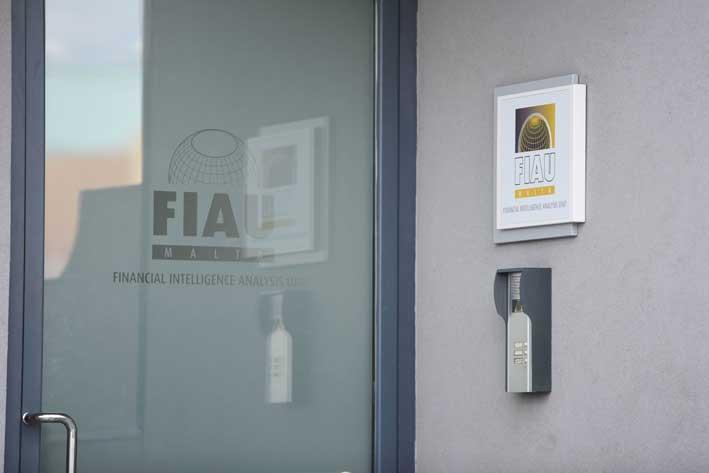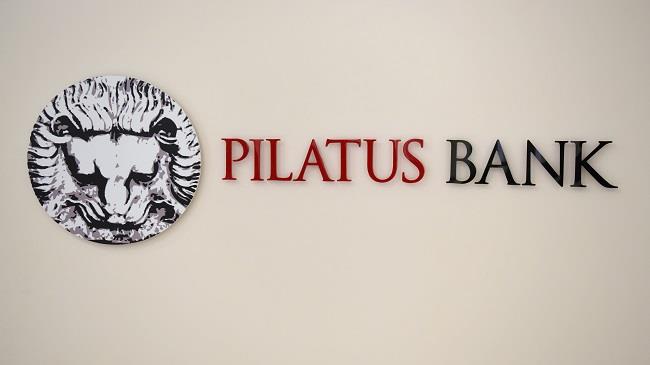The Financial Intelligence Analysis Unit has acknowledged that its supervision of Pilatus Bank presented "a particularly unique challenge", with the unit conceding that it could have done a better job with its supervision of the bank in 2016.
The unit was speaking to The Malta Independent on Sunday, after the European Banking Authority's (EBA) investigation, which began on 23 May 2018, found "general and systematic shortcomings" in the FIAU's application of anti-money laundering directives with regard to the infamous bank.
The FIAU maintain that it is in compliance with Union Law, explaining that it did not "regret its decision not to impose any supervisory measure or sanctions" with regard to the bank, insisting that it did not have "a solid factual basis that the bank has breached its obligations".
Independent reviews steadied concerns over lack of documentation on first visit
In its report, the EBA showed concerns that it could not understand what led to the closure of the case without further supervisory measures or sanctions, positing that the FIAU seemed to "narrow down the scope of the investigation".
The FIAU insisted that on its second onsite examination, which took place on 8 and 10 August by the same officers who conducted the first visit, all the PEP files were once again reviewed and particular attention was focused on ensuring that the main concern of the FIAU, being that of missing information/documentation, be properly assessed.
It was ascertained that the information which had not been made available during the March 2016 inspection was in place during the follow-up visits; however, it could not be established with certainty whether the documentation and information had always been at the bank or whether the bank had taken remedial action following the initial findings report.
The unit's Compliance Monitoring Committee (CMC) did take into consideration two independent audit/legal reviews from KPMG and Camilleri Preziozi Advocates which substantiated the bank's objections to the FIAU's initial findings, that were reviewed and updated by the then Director of the FIAU Manfred Galdes.

Subject persons not obliged by law to keep predefined documents
With regard to the first on-site visit, the FIAU disagreed with the EBA's conclusions that it did not have sufficient records of the specific files and documents that were examined. The FIAU explained that on its first visit, which focused on customer relationships having a PEP involvement, the officers took note of which files it reviewed and noted the unit's concern of the apparent lack of documentation that the bank had in respect of the source of wealth of its customers and the source of funds for particular transactions.
The unit stressed there are no predefined documents that subject persons are obliged at law to retain on file. Since then, the FIAU has introduced a specific working document to be counter-signed by subject persons clearly indicating whether the documentation was found on file or presented during the onsite visit.
Significant changes have been made but review of action plan will take place
The FIAU stressed that it remains "absolutely committed to continuing to enhance the rigour and effectiveness of Malta's AML supervision". It observed that over the last two years the unit has initiated substantial measures through significant increases in budget allocation, such as an overhaul of internal practices to improve the unit's supervision methodology and data collection, a review and strengthening of the CMC's decision-making process, and the strengthening of cooperation with the MFSA.
The FIAU has also immediately reviewed its action plans based on the EBA Recommendations in order to fully address any pending issues in the coming months.
"The FIAU looks ahead to build a strong/solid relationship with the EBA in order to enhance further Malta's supervisory framework and for the EBA to strengthen further its processes for preliminary enquiries and investigations into a breach of Union Laws.

EBA did not provide feedback to changes despite request to do so
The EBA has welcomed the changes; however, it insisted that the need for such wide-ranging plans proves that the policies applied at the time of the Pilatus case were "not appropriate and effective". Pushed on this matter, the FIAU said that the EBA's analysis discourages supervisory authorities from investing constant efforts to improve their protocols.
"In any case, an action plan to address weaknesses and improve the way things are done does not necessarily mean that an Authority was in breach of Union Law."
The unit was also challenged with the EBA's conclusions that the actions taken by the FIAU were insufficient; however, the FIAU revealed that the EBA did not provide feedback on the changes despite being requested to do so during their investigation.
FIAU not given opportunity to hold face-to-face meeting with panel of experts investigating potential breach
In the FIAU's initial statement following the publication of the report, the unit said it had serious reservations on the process adopted by the EBA when carrying out its preliminary inquiry and the subsequent breach of Union law investigation.
Asked to explain, the FIAU said it was not provided with an opportunity to hold a face-to-face meeting with the panel of experts investigating the breach of Union Law even though this is clearly stipulated under Article 10(3) of the Rules of Procedures for Investigation of Breach of Union Law. It also highlighted that the preliminary enquiry evolved into an investigation without being provided with the opportunity of a right of reply, stressing that the FIAU's representations on draft findings were not included in the EBA report to ensure a transparent process.